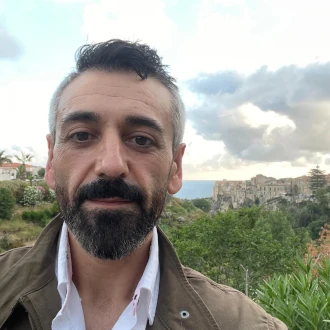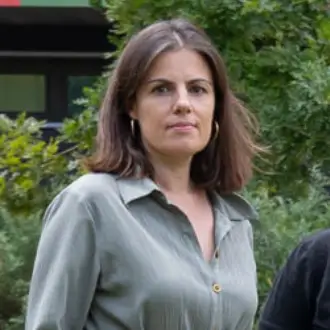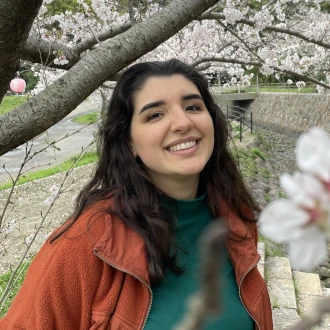The team
The RELANZA team is composed of researchers affiliated with two internationally recognised academic networks:
The research group PRODIGI (Personal and Professional Development through Digital Genres) at Universidad Internacional de La Rioja (UNIR).
The Language Curriculum Special Interest Group (SIG) of the British Association for Applied Linguistics (BAAL).
Both networks are co-led by the project’s principal investigator, Mercedes Querol-Julián, who shares the leadership of the SIG with Darío Banegas.
The participation of team members in these networks is both active and strategic:
Vicent Beltrán-Palanques is a member of PRODIGI and serves on the SIG’s executive committee as Secretary.
Aarón Pérez Bernabeu is a member of PRODIGI and acts as Outreach Coordinator (OC)
Tomasz John is a member of the SIG and also serves as OC.
Nuria Edo-Marzá and Sophia Zaykowsi are members of the SIG.
Both groups are engaged in research lines directly related to the objectives of this project: contributing to the achievement of SDG 4 (Quality Education) by transforming the language curriculum and strengthening teacher professional development, with a strong emphasis on social responsibility and educational sustainability.
Principal investigator

Mercedes Querol-Julián is Full Professor in Applied Linguistics at the Faculty of Education Sciences and Humanities of the International University of La Rioja (UNIR), Spain; and Research Coordinator in the Vice-Deanship of Research. Her main lines of research include multimodal literacy, multimodal analysis, digital interaction, digital teaching, teaching in English as a medium of instruction, and teacher professional development. He co-directs the Personal and Professional Development through Digital Genres (PRODIGI) research group at UNIR and the SIG Language Curriculum of the British Association for Applied Linguistics (BAAL).
Research team

Aarón Pérez-Bernabeu is Professor of Language A (Spanish) in Translation and Interpreting at the International University of La Rioja (UNIR). He is developing his industrial thesis R+D+I PRONUNTIA within the AcqUA group (University of Alicante-Edinumen) on pronunciation teacher training. She designs courses and seminars on pronunciation in ELE for the Instituto Cervantes, the UIMP and other institutions. Her research integrates phonetics and phonology with multimodal didactic applications for oral production and listening comprehension. She also participates in MariCorners, an association that promotes academic debates on LGTBIQ+ issues in the Hispanic field.
Vicent Beltrán-Palanques is a contract professor at the Department of English Studies at the Universitat Jaume I (UJI). He teaches English for Specific Purposes (ESP) and English for Academic Purposes (EAP), as well as subjects related to action research in language teaching. Her research interests include multimodal literacy, multimodal analysis, teaching in English as a medium of education, and pedagogies of English for Specific and Academic Purposes. He is a member of two research teams: Group for Research on Academic and Professional English (GRAPE) and Personal and Professional Development through Digital Genres (PRODIGI). Vicent is the Secretary of the SIG Language Curriculum (BAAL).


Vicent Beltrán-Palanques is a contract professor at the Department of English Studies at the Universitat Jaume I (UJI). He teaches English for Specific Purposes (ESP) and English for Academic Purposes (EAP), as well as subjects related to action research in language teaching. Her research interests include multimodal literacy, multimodal analysis, teaching in English as a medium of education, and pedagogies of English for Specific and Academic Purposes. He is a member of two research teams: Group for Research on Academic and Professional English (GRAPE) and Personal and Professional Development through Digital Genres (PRODIGI). Vicent is the Secretary of the SIG Language Curriculum (BAAL).

Nuria Edo-Marzá is a full professor in the Department of English Studies at the Universitat Jaume I, in Castellón (Spain), where she also obtained her European PhD in English Philology. She is a member of the GRAPE research group (Group for Research on Academic and Professional English). Her main lines of research include specialized languages -especially those related to health, science and technology, and tourism-, corpus linguistics, specialized lexicography, and methodologies for teaching English for specific purposes (ESP) and academic purposes (EAP). He is also interested in multimodality, discourse analysis and digital genres.
Dario Luis Banegas is a Senior Lecturer in Language Education at the Moray House School of Education and Sport, University of Edinburgh, UK. He directs a master’s course on the foreign language teaching curriculum. He also leads the Towards Intersectionality in Language Teacher Education (TILTED) research group at the University of Edinburgh and co-directs SIG Language Curriculum (BAAL). Her main areas of interest are: curriculum development in language teaching, CLIL, social justice, action research and language teacher education.


Dario Luis Banegas is a Senior Lecturer in Language Education at the Moray House School of Education and Sport, University of Edinburgh, UK. He directs a master’s course on the foreign language teaching curriculum. He also leads the Towards Intersectionality in Language Teacher Education (TILTED) research group at the University of Edinburgh and co-directs SIG Language Curriculum (BAAL). Her main areas of interest are: curriculum development in language teaching, CLIL, social justice, action research and language teacher education.

Tomasz John is a lecturer in TESOL and Director of Global Engagement at the Institute of Education, University of Strathclyde, UK. He coordinates several undergraduate and masters modules, including Global Englishes, Language Awareness – Knowledge about Language and Research Methods for TESOL. Tomasz is the Outreach Coordinator for the SIG Language Curriculum (BAAL), as well as the SIG Social Justice for Language Education (BAAL). His main interests are: language education, social justice and internationalization of higher education.
Sophia Zaykowski is an MA student in TESOL and Intercultural Communication at the University of Strathclyde, UK. She holds a BA in Secondary Education and English from the Lynch School of Education, Boston College, USA. She has several years of experience working in urban schools in Boston and rural schools in Japan. Her main areas of interest are: intercultural communicative competence, teacher professional development, and transnational identities.


Sophia Zaykowski is an MA student in TESOL and Intercultural Communication at the University of Strathclyde, UK. She holds a BA in Secondary Education and English from the Lynch School of Education, Boston College, USA. She has several years of experience working in urban schools in Boston and rural schools in Japan. Her main areas of interest are: intercultural communicative competence, teacher professional development, and transnational identities.
